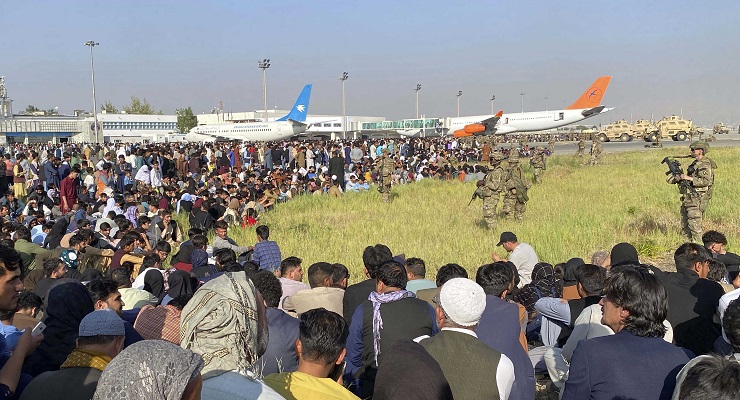
As the Taliban push into Kabul loomed close last week, the director of an international aid agency told senior staff that expat personnel would be evacuated if the militants gained control but their Afghan colleagues would not be going with them. Their jobs could also not be guaranteed.
Afghan personnel pleaded with the head office in Paris. Former and serving expat staff supported them with an online petition: “It is imperative that we do not abandon them now in the face of this crisis.”
The agency wrote saying it would ask the French government to evacuate them, but the letter also said it was trying to strike a balance between the safety of local personnel and the desire to keep them in place to return to work once it was safe to do so.
“We raised a lot of concern about our safety,” said one senior Afghan aid worker who spoke on condition of anonymity and asked that the organisation not be named. “One person who worked with the organisation for more than 15 years asked questions regarding the future of his family’s safety.”
Many aid agencies have promised to “stay and deliver” in Afghanistan — a common refrain for those accustomed to operating in high-risk areas. But the declaration obscures a confronting choice. There are acute concerns for local workers’ safety due to their links to Western aid programs, but if agencies help them to evacuate who will be left to maintain crucial humanitarian programs?
“I want to stay to support the people that need humanitarian aid, but if I do my family will lose their freedom,” said an Afghan employee of another global organisation which has provided workers with referral letters to apply for visas to evacuate.
Speaking from Kabul, the senior staff member of the French aid organisation said: “For the female staff, it’s quite difficult. I received a call from my female staff the other day and they were crying. The Taliban are issuing letters saying it’s OK for some programs to operate, but the reality in the field is very different.”
Afghanistan is recognised as the most dangerous place in the world to be an aid worker. Many workers live in guarded compounds and travel in armoured cars. In 2020, 276 aid workers suffered major violent attacks and 108 were killed, the Aid Worker Security Database found.
Crikey asked the UN office in Afghanistan how many of its expat staff were evacuated, and if any Afghan staff had been evacuated. It said it couldn’t answer for security reasons.
Foreign aid forms the backbone of Afghanistan’s economy, funding its institutions by about 75%. But some donors are considering or have already cut payments until they’re certain what type of government the Taliban will form. This threatens the jobs of Afghan aid workers and the ability to respond to a dire humanitarian crisis.
The German government announced last week it would stop its foreign aid payments if the Taliban imposed sharia law, and the International Monetary Fund has suspended Afghanistan’s accounts because of a lack of clarity over the recognition of the Taliban as Afghanistan’s government.
“A major concern is that donor sanctions and cutting funding will mean people will lose these jobs and penalise the poor,” said Dr Nemat Bizhan, a lecturer at ANU’s development policy centre who helped develop programs and reforms that helped Afghanistan to recover when the Taliban fell in 2001.
“Before the Taliban was in control I would make the case that we need to put more money into the government, but now is the time to put more money outside the government and directly to NGOs,” he said.








Is Germany also going to stop trading with Saudi Arabia and other countries operating under sharia law?